• AC TUPAS
Photos | Gabriel De la Rosa, The LEAD, USLS IMC & SIDLAK – CAS Publication
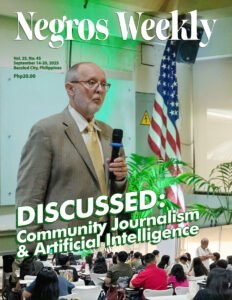
Veteran American journalist Gary Kebbel challenged communication students and faculty from the University of St. La Salle and Bicol University to rebuild the public’s declining trust in media amidst the age of artificial intelligence during a lecture entitled “Tech’s Role in Shaping Community Journalism” at the USLS Cody Conference Halls on Sept. 10.
Organized by the USLS Communication Department in collaboration with BU, and supported by the U.S. Embassy in the Philippines and American Spaces Philippines, the event centered on issues facing contemporary journalists as rapid technological changes reshape information processes.
The talk was also aired live via Zoom to accommodate participants from BU.
“The key, I think, for news organizations is creating a brand of trust,” Kebbel said in his lecture, emphasizing the necessity for newsrooms to strengthen their credibility so that new internet audiences can fully grasp the value of their work.
Kebbel was dean of the College of Journalism and Mass Communications at the University of Nebraska-Lincoln.
The resource speaker is the founder of the MobileMe&You annual conference on mobile media best practices to better inform students, faculty and journalists how to reach audiences on the devices they use.
He shared a nuanced view that while journalism and public relations are distinct fields, the profession could potentially benefit from integrating one of PR’s strengths: “Journalism needs a really good PR agent. Journalism needs somebody who can explain to the public what journalists do.”
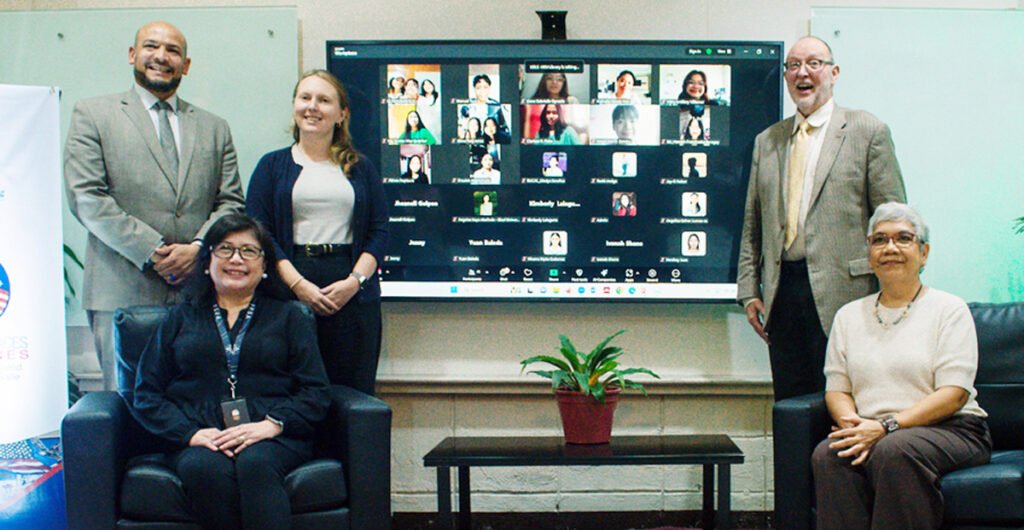
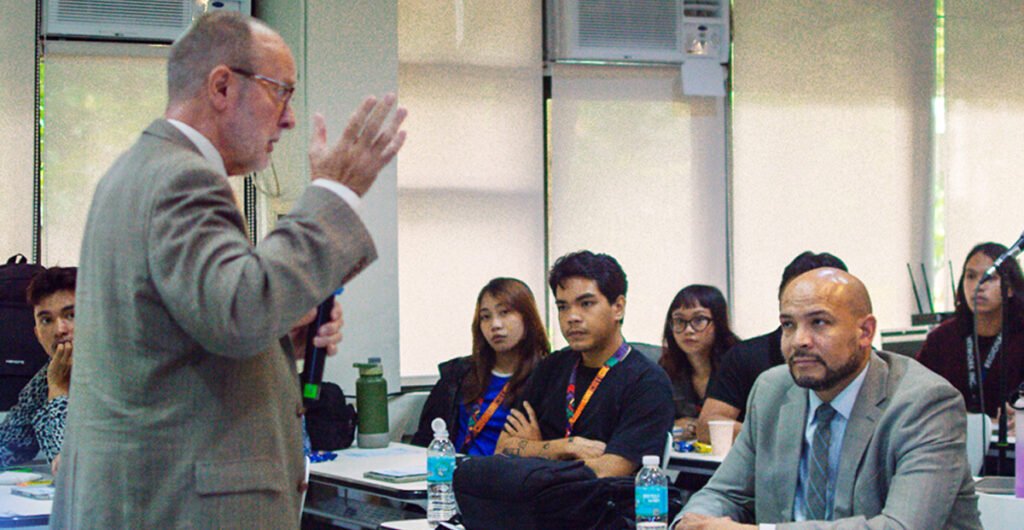
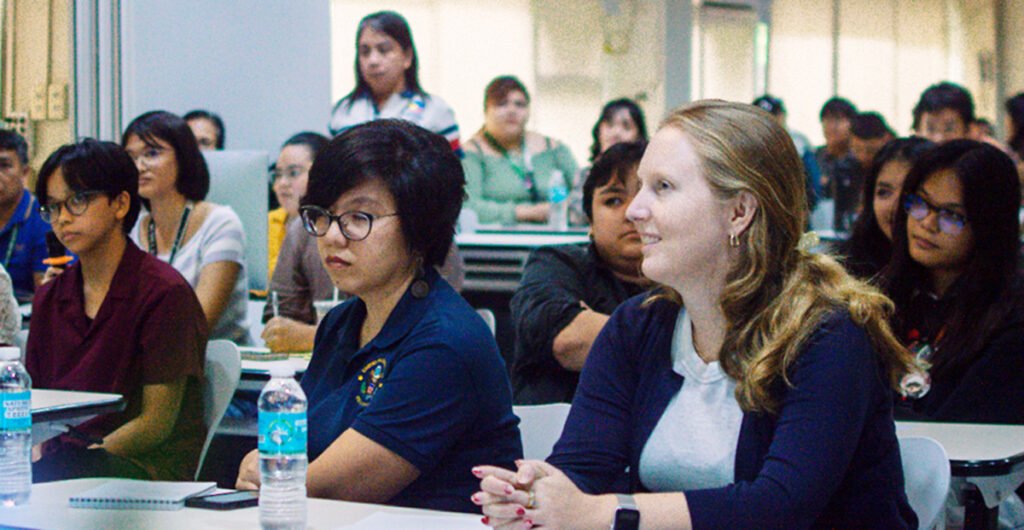
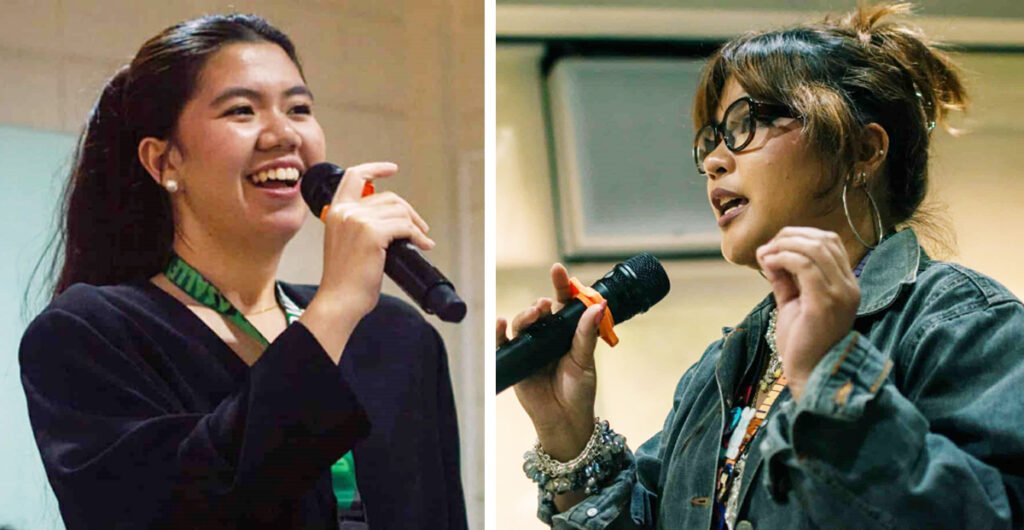
Furthermore, Kebbel highlighted that innovation and experimentation on new digital technologies are now essential skills for journalists in navigating the digital landscape.
He added that journalists must adapt their authenticity to each medium as they evolve with the dynamics of new media.
The veteran journalist also explained how information is connected to democracy. “Democracy functions when people are educated, when they have complete information […] and serve the best of their interest,” he shared, stressing how truth equips citizens in forming sound public opinion.
Throughout the interactive lecture, participants raised pressing questions and shared insights on issues such as the usage of AI tools in news reporting, the distinction between journalists and content creators, and press censorship.
“What struck me most during the lecture was the discussion on the role of PR in today’s journalism. I was still surprised that such a discussion even needed to take place,” AB Communication senior Alessandra Asuncion noted. “To me, it highlights how many people today misunderstand journalism and only take it seriously when it aligns with their personal beliefs.”
Another student, Patricia Alonso, a sophomore, said:
“With a thought-provoking discussion on journalism and how messages are being communicated, the talk opened up different perspectives from the students, sparking interesting conversation. Seeing how fast journalism has evolved in the last 10 years, the audience can now inform one another given that we are in the age of social media.”
As barriers get broken, she added, we are given the question: “will we be able to handle what we have to disseminate information properly?”
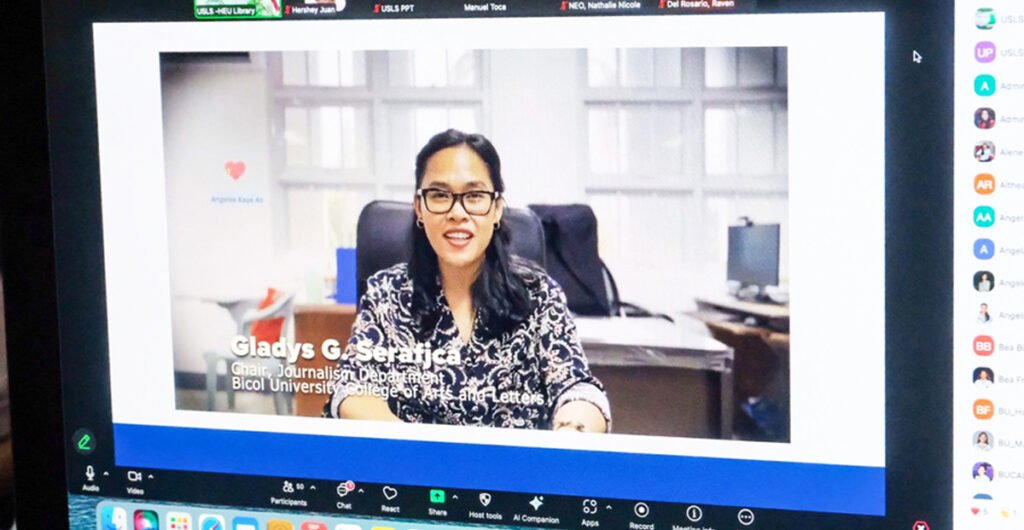
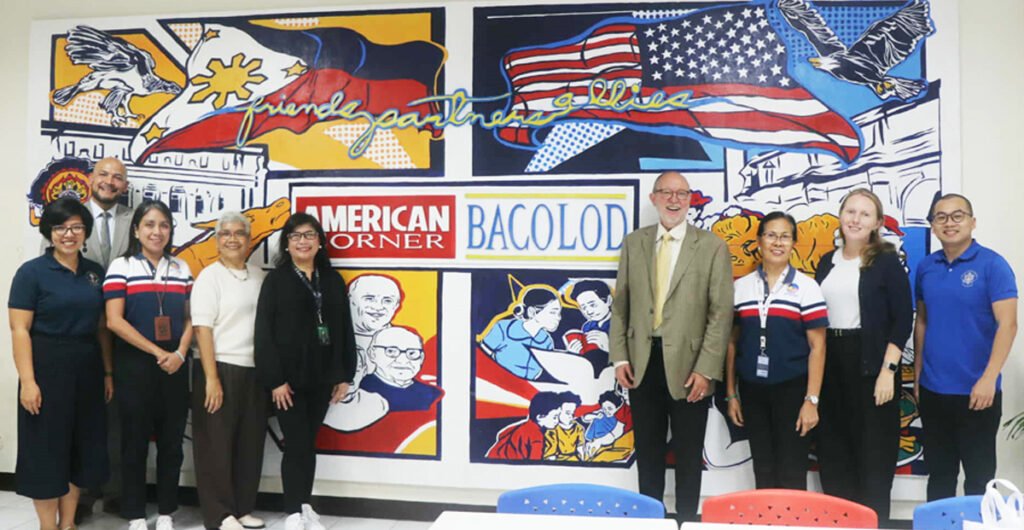
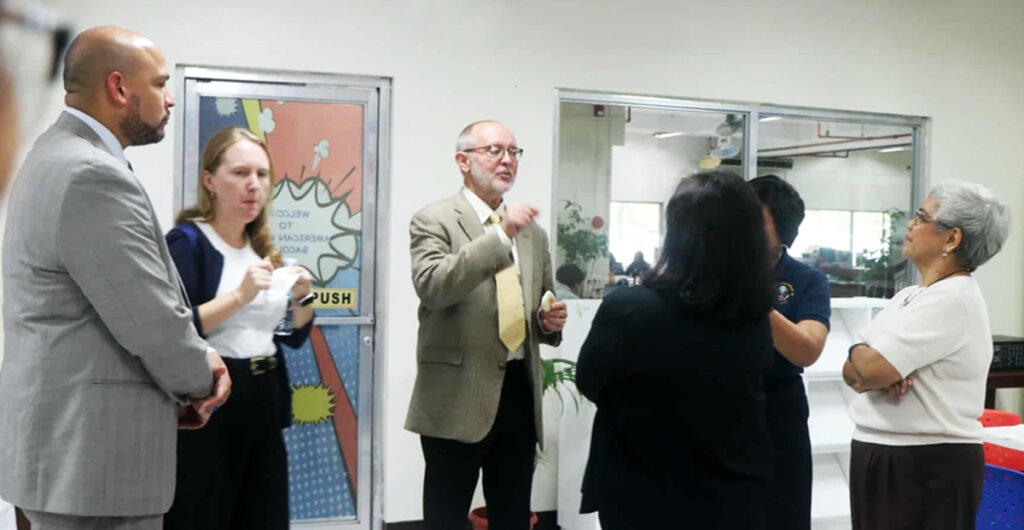
Sharing her view on the discussion, Reylanie Princess Esquerida, editor-in-chief of The LEAD, the publication of the Communication Department, said:
“The talk encapsulated the evolving landscape of community journalism and the challenges that come with it. Not only did it answer queries on the transformation of journalism, but it also allowed for a dialogue that later sparked my own realization on the topic. It’s true that the medium for which journalism is carried is changing; yet, through the years, the discipline and the principles stay the same.”
It should still be anchored to the truth, and its loyalty should remain with the people, the Communication senior added.
In her opening remarks, Arts and Sciences Dean Dr. Rowela Chiu underscored the importance of using media technologies responsibly.
Prof. Gladys Serafica, Bicol U Journalism Department chair, in a recorded message, reinforced the need to empower local media with digital tools to maintain relevance.
USLS Communication Department Chairperson Prof. Agnes Lira Jundos closed the program by emphasizing the role of their students in embodying the Lasallian core value of faith and nurturing peace in their communities. “We are affected by how we should promote peace. And we believe that we will be forever eluded by peace unless we have responsible, communitarian, and Christian communicators,” she said.
With Kebbel were members of the U.S. Embassy team, including spokesperson Jameson DeBose, deputy spokesperson Mary Sturgis, press and media specialist Camille Conde, press and media coordinator Jovic Yee, and Maika Torres, digital production assistant.
Director Ma. Girlie de Guzman of the USLS-based Bacolod Center and coordinator Sheila Lucero also attended the event. | NWI




